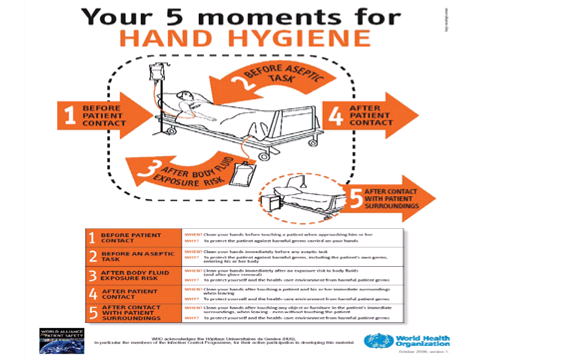■ 16/12/2009 The special lecture series for graduate students
Date:16th/Dec/Wed/09 17:00~18:30
Place: Chikusui event hall at Kurume university
Subject: Why is ICN necessary now?
Mrs. Siew Stielow Infection Control
Consultant,Radiation Safety Officer
The
Royal Victorian Eye & Ear Hospital,Australia
Total participants:61
Contents:
- Australian Commission on Safety and Quality in Health Care (ACSQHC)
- Australian Infection Control Association (AICA)
- Victorian Hospital Acquired Infection Surveillance System (VICNISS)
- Hand Hygiene Victoria, WHO and
Australia
ACSQHC
5Key Initiatives
1. National Surveillance System
To reduce harm to
patients from hospital associated infections through the use of surveillance
2.National Infection Control Guidelines
To improve useability and provide permanent
currency of information
3.National Hand Hygiene Project
4.Building clinician capacity
To increase the ability of infection control
practitioners by providing them with skills and resources to engage and educate
clinicians, managers and healthcare consumers to adopt a collective HAI
prevention mindset
5.Antimicrobial Stewardship
Development of a national system to monitor
antibiotic usage
National Surveillance System
National Surveillance Committee
setting up criteria to determine ways forward over the next three years.
National
Infection Control Guidelines – currently under review
Hand Hygiene in Health Care Setting
Major transmission route for multi-resistant organisms (MRO) in health
care faclities are by :
- direct contact via hands or
- possibly indirectly via contaminated equipment that is not cleaned between
patients
Building clinician capacity
- The ACSQHC has commissioned Southern Health, Victoria to develop an online
module for Infection Control novice.
- There are 10 modules. Should be ready by Jan 2010
10 modules for Novice Infection Control
Professionals
1.Principle
of Infection Control
2.Epidemiology
and statistic
3.Surveillance
4.Basic
microbiology and MRO
5.Infectious
diseases of interest to infection control
6.Staff health and immunisation
7.Outbreak management
8.Building
works
9.Occupational
exposure
10.Cleaning, disinfection and
sterilisation
Hand Hygiene Project
In 2004 the VQC (Victorian Quality Council) initiated and funded the Victorian
Hand Hygiene Project as a pilot in six 6 Victorian public hospitals to
reduce incidence of hospital acquired infections.
The Project Involves:
- actively promote the use of Alcohol-Based Hand Rubs (ABHRS) for all Health
Care workers (HCWs)
- hand hygiene audits were conducted to monitor HCWs compliance. Feedback
provided to HCWs
- monitoring of methicillin resistant staphylococcus aureus (MRSA) rates
data collection of ABHRS supply
The VQC project was the successfully rolled out during 2005-06 to all public
hospitals in Victoria.
From July 2007 the Department of Human Services has continued the Victorian
Quality Council HH Project.
WHO Advanced Draft
Guidelines on Hand Hygiene in Health Care
- Began in 2004
- Two international consultations attended by experts from all over the world
and technical experts from WHO
- A core group of experts reviewed available scientific evidence
- Over 100 international experts contributed to preparing the document
- WHO advisers and members of the WHO Consultations and Task Forces on Hand Hygiene actively participated in the work process up to final publication
Part I -reviews scientific data on hand hygiene practices in health care
and in health-care settings in particular
Part II - provides consensus recommendations of the international panel
of experts mandated by WHO to summarize the evidence and proposes guidelines
that could be used worldwide
Part III - discusses outcome and process measurements.
Part IV - addresses the issue of promoting hand hygiene on a large scale
Part V - covers public information

Hand Hygiene Australia
- 3 years funding from ACSQHC to implement National Hand Hygiene Initiative
- Report to ACSQHC
- Leverage off existing Hand Hygiene programs
- Prof Lindsay Grayson
- Independent of jurisdiction and hospital
- Based at Austin Health, Victoria
Objectives
- Develop reliable indicators of hand hygiene compliance
- Accurately measure hand hygiene compliance
- Reduce rates of healthcare associated infection
- Make hand hygiene ‘core business’ for all health care workers
| Comment from participants |
- It is the role of university hospital to lay emphasis on raising of ICN
passing in the world.
- I was able to recognize the important of hand hygiene.
- The cause of infection and spreading are different between Japan and other
countries,but it is important to share experience and knowledge in each
country.
They made a presentation about real activities contents of a link nurse
in Kurume university hospital about disinfection ,waste matter,hand hygiene,cleaning
and sterilization management and exchanged opinions eagerly.
Participants:Link nurses 10; others 6
|